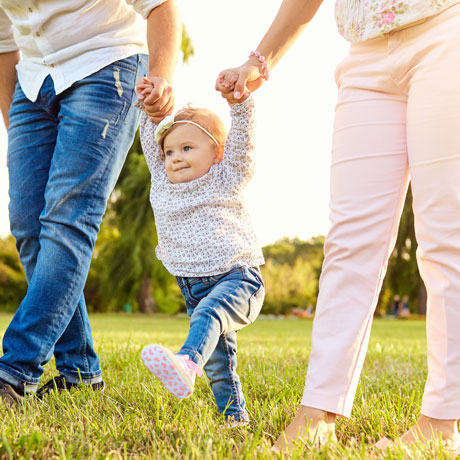Learning to be responsible for one’s own actions helps to encourage a child’s social and emotional development. Here, the early childhood development professionals at Celebree detail how to instill a sense of responsibility in your child.
Taking responsibility isn’t always natural for children, simply because they are still learning to understand how their actions, and the consequences of their actions, influence others. But, teaching young children to be responsible at an early age sets a foundation that will help your child succeed throughout their childhood and adult life. As a resource, the professionals at Celebree Learning Centers have prepared information for parents seeking to teach their young children about responsibility.
Let Your Children Help
Children often want nothing more than to show their parents that they can execute tasks on their own. While allowing children to help with routine activities may not be the fastest way to get chores done, it does help your child to develop a sense of independence at an early age. Participating in household chores also teaches children that they can be autonomous beings, responsible for themselves and their environment.
Allow Your Children to Create Solutions
Parents often want to guide their children to the “right” answer. However, giving your child an opportunity to find their own solution allows them to take responsibility for their actions by creatively solving problems. Instead of providing a next-step direction, consider asking your child to do so. Propose questions like, “what should we do next?” and “where do we go now?”, as this gives your child the autonomy to make decisions but also the confidence that you will be there to support them if they are unable to do so.
Provide Routine and Structure
Stability is important to helping your children grow in a healthy manner. Creating a routine for your children provides the simple structure that is beneficial to fostering this sense of stability. Routines can also help your child develop a sense of responsibility by providing a consistent set of tasks they can learn to complete by themselves. Without structure, it can be difficult for children to learn what is expected of them, and thus can hinder their sense of responsibility.
Teach Your Children to Understand Their Impact
When children disagree with their peers, siblings or even you, they do not always understand the impact their words have on others’ feelings. But, forcing a child to apologize when they do not understand the feelings they have caused will not teach them to take responsibility for their words or actions. Instead, help your children to work out how they are feeling, and then ask them to imagine how the other party may be feeling. Coaching them through these emotions will help them understand the weight words carry and in turn give your child a sense of responsibility for their words and actions.
Model Responsibility
Children need role models to help them learn what is helpful and hurtful behavior. Making responsible decisions of your own provides children with examples of ways they can be responsible themselves. When you have the opportunity to do so, talk your child through the responsible choice you are making, and explain why that choice is important. Children often seek to model the behavior that their parents exhibit, as it is their earliest example of how they should interact in the world. Thus, it is essential to make sure they are being affected positively by your actions.
Raising responsible children takes patience, guidance and diligence, but the rewards are infinite. At Celebree, we believe we have a responsibility to your children to help them practice the values they learn at home, and help you shape them into responsible members of society. If you are interested in one of our educational programs for infants, toddler, preschoolers or school age children, contact us today!

